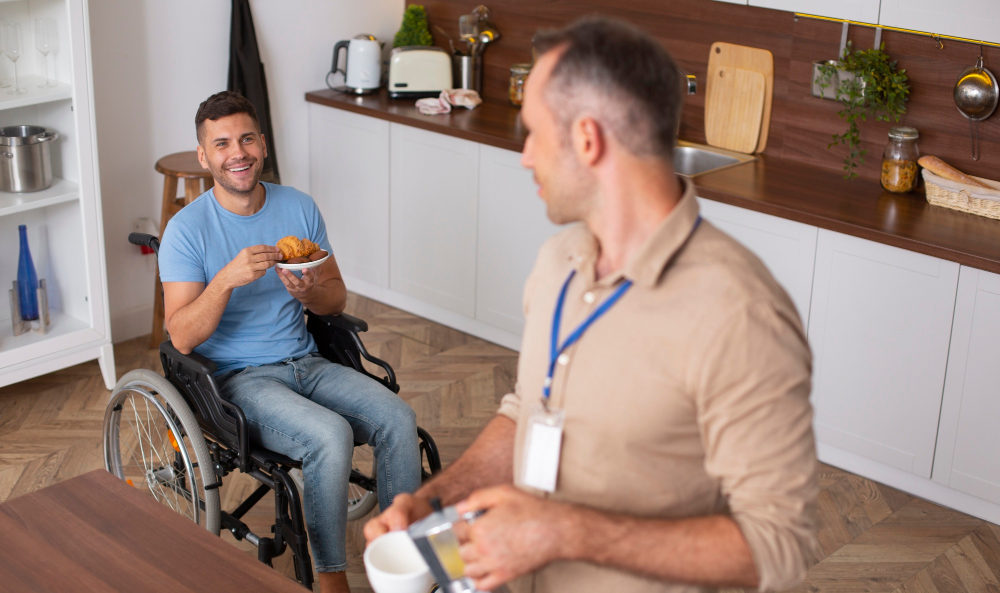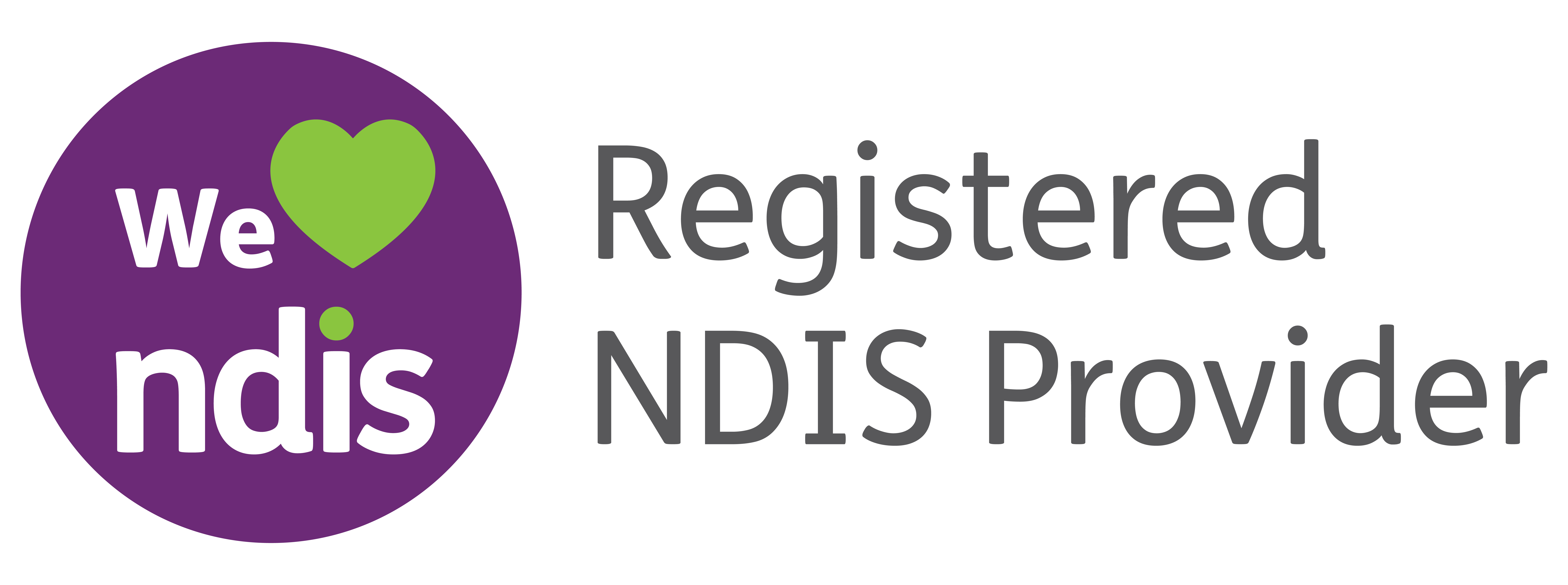
Are you interested in the idea of living as independently as possible? The National Disability Insurance Scheme (NDIS) provides funding for Supported Independent Living (SIL), which can help you connect with the right support staff to assist you with your daily tasks in your home. Additionally, SIL funding is available for individuals who live in shared accommodation with other NDIS participants.
If one of your aspirations is to move out of the family home and establish greater independence in your living space, Supported Independent Living may be the pathway to achieving that goal. SIL is specifically designed to offer individuals with disabilities a place they can truly call home while receiving the necessary support to lead a fulfilling life.
What Is Supported Independent Living (NDIS SIL)?
Supported Independent Living (SIL) provides ongoing assistance with daily tasks, allowing NDIS participants to live independently under the guidance of qualified staff. This support includes help with personal care, meal preparation, and skill development, tailored for individuals who require significant assistance throughout the day and overnight. Whether living with others or independently, SIL offers the necessary support, promoting independence and alternative living options under the NDIS. The funding covers essential support, such as assistance from support workers with dressing, showering, and meal preparation.
Consider SIL if you are seeking support to enhance independence and community living. This service is designed for individuals who require assistance with daily activities in shared accommodations under the NDIS, with dedicated teams working to help individuals achieve personal goals and build independence.
What Does SIL Funding Cover?
Supported Independent Living (SIL) under the National Disability Insurance Scheme (NDIS) covers support for personal care needs such as dressing, showering, and toileting, as well as household activities and meal preparation. SIL funding is offered at three levels based on varying needs:
- Lower needs: Regular supervision of living arrangements
- Standard needs: 24-hour active assistance with most daily tasks
- Higher needs: Continual and more complex active assistance
The goal of Supported Independent Living services is to develop skills and independence within the community. This includes tasks like cooking, personal care, medication management, and capacity-building activities such as managing finances and improving social skills.
SIL NDIS includes a variety of supports, such as:
- Personal care, including toileting, showering, grooming, and morning routines
- 24-hour support for individuals with high-care needs
- Assisting with transfers in and out of bed
- Help with medication management
- Teaching daily living skills
- Assistance with tasks like laundry and grocery shopping
- Developing social skills
- Participating in group activities with housemates
- Preparing nutritious meals
- Implementing behaviour support plans
- Assistance with medical appointments
- Support with supervision, personal safety, and security
- Help with using public transport
- Learning how to manage your household budget
- Planning social activities you enjoy
- Organizing household rosters and activities
SIL funding provides support workers to assist with daily living activities, fostering independence and capacity building. Services depend on individual goals, determined through consultation with a Support Coordinator and NDIS planner.

SIL funding can cover personal care tasks, household chores, support for activities outside the home, and overnight supervision. It may also include related funding for things like Specialist Disability Accommodation (SDA) or home modifications, tailored to individual needs and goals. Your NDIS planner can help determine the most suitable supports to enhance accessibility and support delivery.
Who Can Access NDIS SIL?
If you need round-the-clock support for daily living, you can apply for Supported Independent Living (SIL) services. To be eligible, you must first undergo a Functional Assessment Report (FAR) conducted by an Allied Health professional to demonstrate your high support needs. You also need to submit an Identifying Housing Solution report prepared by a support coordinator.
The SIL funding you receive depends on various factors such as your age, living skills, independence level, goals, and any necessary home modifications and assistive technology. If you are an NDIS participant, you can apply for SIL services as part of your NDIS plan. The NDIS covers the cost of support workers who can assist you in your home.
To access SIL funding, you need to work with an NDIA planner and an NDIS local area coordinator to determine its suitability for your needs. You can either seek assistance from a support coordinator or research disability support providers independently to find the right services that suit your needs.
What Does SIL Not Cover?
NDIS SIL (Supported Independent Living) helps with daily tasks to support independent living. This includes assistance at home, but it does not cover rent, home modifications, or daily living expenses such as food. It’s recommended to include Support Coordination in your NDIS plan to access SIL funding.
The cost of support does not include home rental, daily living expenses like food and activities, support during hospitalization, and items covered under other sections of the NDIS price guide, such as assistive technology and transport costs.
NDIS SIL Rules and Price Guide
Supported Independent Living (SIL) costs are covered by the National Disability Insurance Scheme (NDIS) for approved participants with disabilities. The NDIS uses regulated pricing arrangements to determine payments to service providers. SIL funding covers the costs of Support Workers, who provide necessary support in daily life as outlined in participants’ NDIS plans. This assistance must meet NDIS funding criteria of being reasonable and necessary.
However, it’s important to note that SIL funding does not include expenses such as food, electricity, clothing, rent, or mortgage payments. It also does not cover assistance in finding accommodation. For additional support in these areas, states and territories handle social and affordable housing, which may involve waiting times. The Australian Government provides funding for the Disability Support Pension and Commonwealth Rent Assistance to aid with rental and utility costs.
The Difference Between SDA and SIL (SDA Vs SIL)
Specialist Disability Accommodation (SDA) is designed for individuals with complex care needs, offering specially designed housing. Supported Independent Living (SIL) provides on-site support for daily tasks and the development of independent living skills. Eligible participants may receive funding for both SDA and SIL, which are allocated separately in their plan to provide flexibility in choosing service providers. SDA aims to simplify access to support, often involving shared homes with a small number of residents. The funding covers the accommodation costs, allowing individuals to potentially live alone if it aligns with their needs and circumstances.
When specially designed housing or modifications and daily living assistance are both necessary, funding for SDA and SIL is separated in the plan. This arrangement offers residents a broader range of options, enabling them to select a housing environment that best suits their needs while accessing the SIL supports of their preference. While SIL and SDA may seem similar, their focus differs: SIL concentrates on support services for managing daily life, while SDA funding primarily covers the accommodation itself.
Supported Independent Living (NDIS SIL) Provider
Safelane Healthcare is committed to providing collaborative support to help you achieve your goals and enhance your quality of life. Our approach involves personalized care, exceptional standards, tailored support, encouragement, multidisciplinary collaboration, empowerment, and cultural sensitivity.
Safelane Healthcare offers Supported Independent Living (SIL) NDIS services in Melbourne and Sydney, aimed at promoting independence and improving quality of life. We provide personalized support and opportunities for skill development. For inquiries about SIL or disability care services with Safelane Healthcare, please call us at 1300 10 9333 or fill out the form on our website.
Wrap Up
Supported Independent Living (SIL) under the National Disability Insurance Scheme (NDIS) provides individuals with disabilities with a way to become more independent and integrated into the community. SIL offers personalized support for daily tasks and skill development, allowing for living arrangements suited to individual needs, whether in shared accommodation or independently. SIL funding covers various support services such as assistance with personal care, household activities, and community engagement, aiming to enhance independence and personal growth. It’s important to note that SIL funding does not cover rent or daily living expenses. However, it is a crucial resource for individuals aiming to transition to more independent living arrangements.
Subscribe Our Newsletter
Join our newsletter for community updates and resources.

